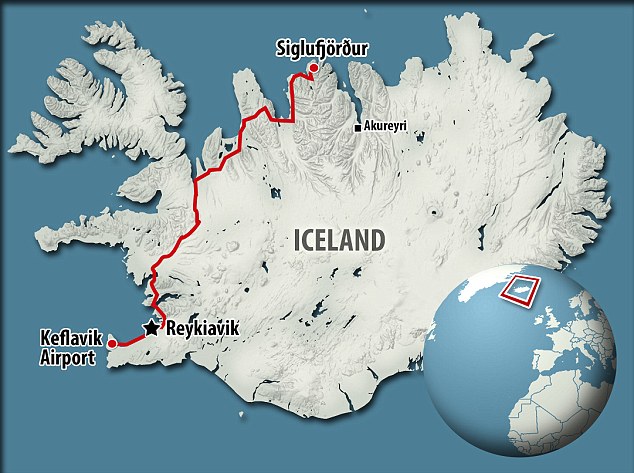
As a leader, there’s no doubt you’ve been in situations where the best thing you could do is to stop and ask others for help.
Did you?If not, why not?
Consider this “bizarre but true” story:
Last Monday, New Jersey resident Noel Santillan flew to Iceland on vacation. Landing at Keflavik International Airport after an overnight five-hour flight from New York, Santillan was ready to go to his hotel, the Hotel Fron on Laugavegur, a main street in Reykjavik, Iceland’s capital.
Reykjavik is about a 40 minute drive from the airport.After picking up his rental car, Santillan typed the Hotel Fron’s address into his GPS.
With one tiny mistake.Instead of typing Laugavegur, he typed Laugarvegur.
What difference would the extra “r” make?After driving nearly six hours and 428 km (266 miles) through the remote Icelandic countryside, Santillan arrived in the tiny fishing village of Siglufjordur.
The northernmost village in all of Iceland.Siglufjordur happens to have a road named Laugarvegur-the street name Santillan had typed into his GPS.Santillan finally knocked on a door to ask someone for directions. A local woman told him that he was not in Reykjavik.
Here’s a map of his journey:
Santillan has become somewhat of a minor celebrity in Iceland over the past week. In an interview with local news outlet DV, he said that while he’d seen numerous signs pointing towards Reykjavik in the opposite direction, he stopped and repeatedly inputted the address into his GPS. The directions were always the same. Thus, he decided to put his faith in his navigation tool.It may be easy to laugh off this example as completely far-fetched. But Santillan’s adventure provides a cautionary tale for the rest of us.
As smart as we’d like to think of ourselves, we all make stupid choices from time to time. Santillan (and the rest of us) are predictably irrational.
In hindsight, it’s painstakingly obvious that Santillan should have stopped and asked for help sooner. Why didn’t he?
And why, for that matter, don’t all of us ask for help more often?
Consider these three reasons:
-
Decision Fatigue
Santillan had just come off of an overnight flight, and probably hadn’t slept. He was also trying to navigate his way in a new country. Both these factors (as well as stress) can lead to cognitive overload–a precursor to decision fatigue.
When in this state, asking for help can feel like just another thing to have to do. Decision fatigue is considered one of main causes of irrational decision making. It leads to impulsiveness and poor self-regulation. When in the clutches of decision fatigue, people can make some really stupid choices.
If you’re overworked, overloaded, and overwhelmed, there’s a good chance that you suffer from decision fatigue. In those moments, what choices are you making? How do they serve you?
2. Confirmation Bias
Santillan plugged in an initial address to his GPS. For his six hour journey, he clung to the belief that his “answer” must be correct.
As a rule of thumb, people prefer the answers they already have to other alternatives. To stop and question your “right answer” takes time, effort, and (hardest of all) a willingness to challenge one’s own ego. After all, if you’re on the right track, why change? It’s a lot easier to stay the course.When on your biased (I’m right!) course, you’ll most likely interpret any additional information in a way that validates what you already believe.
Leaders who surround themselves with “yes” people have institutionalized the confirmation bias.Are you willing to question your ‘solution’, and see what alternatives exist?
3. Anchoring
Even though Santillan saw signs pointing to Reykjavik, he chose to follow the GPS instead. He put his faith in his technological tool. After all, the GPS was his anchor. It gave him his first piece of navigational information.
Anchoring describes the human inclination to depend too much on the first piece of information offered (the “anchor”) when making decisions. This primary piece of information is then used to make all subsequent decisions. This creates an over-reliance on the anchor. This is what the psychologist Abraham Maslow referred to when he stated, “I suppose it is tempting, if the only tool you have is a hammer, to treat everything as if it were a nail.”
Do you stop and consider how the first piece of information you received influences your decision making?
What are other reasons (rational or irrational) that leaders resist asking for help? Join the conversation by leaving a comment below.
